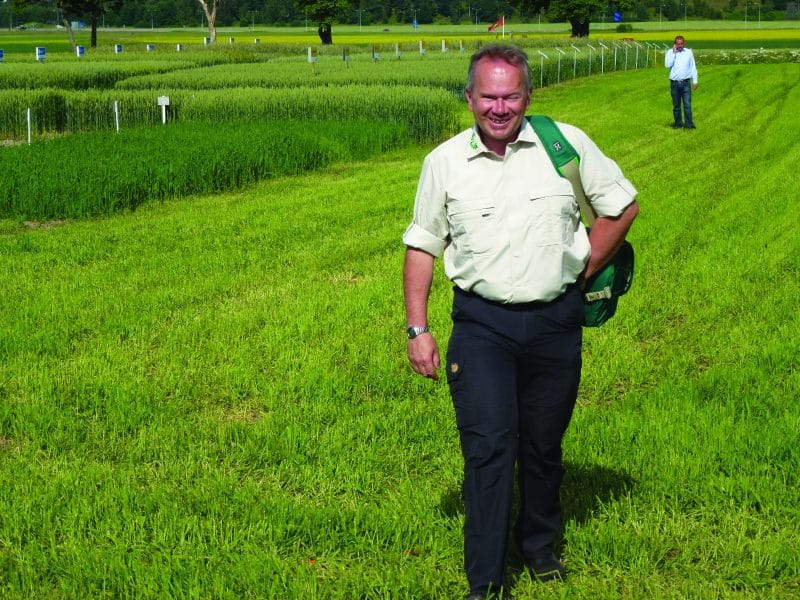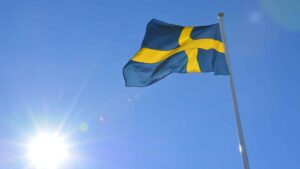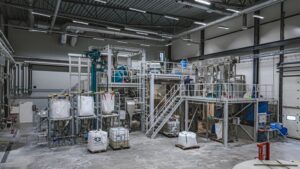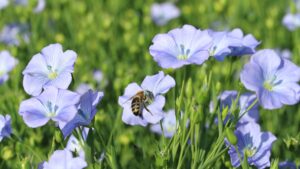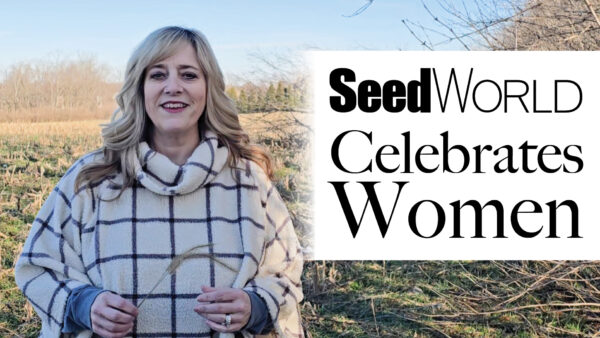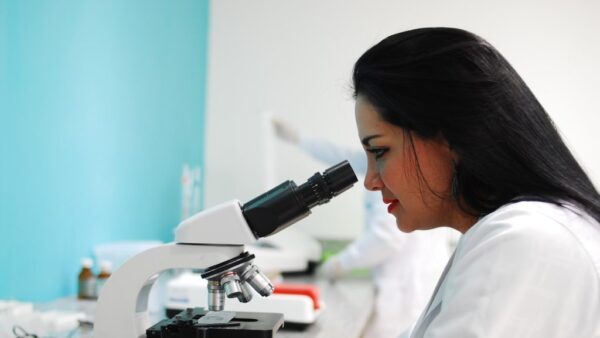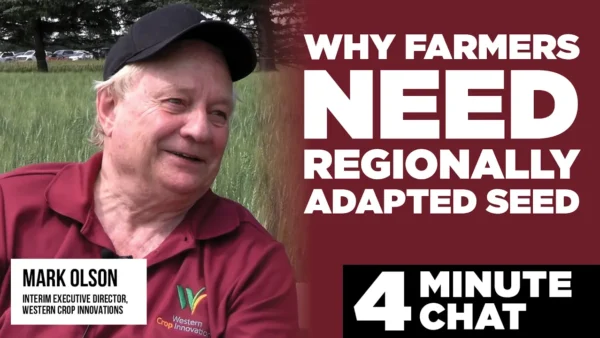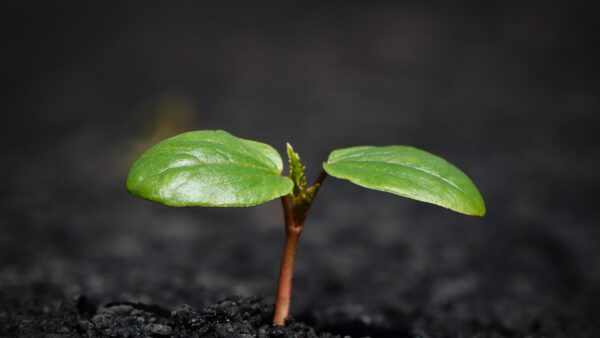The Swedish Seed Association is providing important assets for arable farming in the northern regions of Europe
Sweden is a long and narrow country in the northern part of Europe stretching over several different climatic zones. The growing conditions vary tremendously, from a relatively mild coastal climate in the south to a subarctic climate in the north. The latter comes with a short plant production period, counted in the number of days, but very intense plant growth with long days with close to 24 hour sunlight. Agriculture and plant production has to adapt to these different climatic conditions through careful selection of crops and varieties developed specifically for these different production areas.
It is the plant breeders and seed tradespeople who have to ensure that these different requirements are fulfilled to give the farmers access to the best and most adapted varieties for a new and viable crop production season throughout the country.
A Long History
Sweden has a long tradition in plant breeding and variety development. The interest in plant breeding, with the aim of producing hardier and higher yielding crops, started to grow in Europe in the later part of 19th century. An entrepreneurial sea captain, as well as farmer, Walfrid Weibull, realised the potential development of new varieties adapted to the local growing conditions. In 1870, he started a plant breeding company in the city of Landskrona in the south of Sweden, which some years later became the limited company W. Weibull AB.
With the rediscovery of Gregor Mendel’s theories of inheritance in 1900, the interest of genetics and plant breeding was further intensified and two more companies were established: Svalöf AB with breeding programs for a range of different crops, and Hilleshög AB focusing on sugar beet breeding. These three companies have provided a range of new and improved varieties to Swedish and European farmers throughout the 20th century. Today W. Weibull AB and Svalöf AB have merged and are owned by and form a business unit within the company Lantmännen, the Swedish agricultural cooperative, and Hilleshög AB has been acquired by and is now part of the company Syngenta.
Apart from the plant breeding companies, a number of dedicated seed companies are established throughout the country, multiplying and certifying seed for trading and sale to farmers. Three of these companies have joined forces and stand behind Scandinavian Seed. Scandinavian Seed is not an active plant breeding company, but represents varieties for the Swedish market, varieties bred and owned by other European plant breeding companies.
The total Swedish arable acreage is close to 2.6 million hectares. A larger share of this acreage (1.1 million ha) is used for production of forage crops for silage production as well as grazing. The total acreage of cereal crops is close to 1.0 million ha, where wheat is grown on 460,000 ha, barley on 330,000 ha and oats on 170,000 ha.
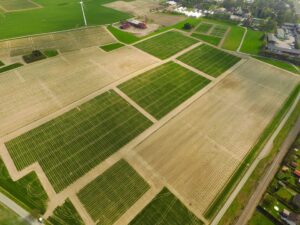
Challenges Ahead
The challenge for plant breeders and seed companies will be to maintain the future introduction of new and improved varieties suited for all the different growing conditions throughout the country. With the expected climatic changes, there will be an extension in the growing period in all parts of the country and the new varieties have to be able to utilise this longer period for productive assimilation and convert this energy into improved yield. The challenge for the northern part of the country will be to find candidate variety types not only adapted to an extended growth period, but also utilise the long day length conditions.
With a warmer climate the plant pathogens will also extend their infection ranges further north. This will be true for rust, mildew and other fungal pathogens, and also insect transmitted viruses. Autumn infection with aphid transmitted viruses on newly drilled cereal crops has not been an issue in the past, but will be something to monitor closely from now on. Another point also to be included in the equation is the Swedish authorities’ very strict policy for the approval and use of plant pesticides.
As a consequence, all new varieties introduced on the market have to express good and broad disease resistance, not only to pass the European Integrated Pest Management requirements (IPM legislation), but also have to produce good yields of good quality without the aid of several pesticides not approved for use in Sweden.
Royalty Collection
To maintain an interest from plant breeders to continue making investments in plant breeding and variety development for the different market segments and with relative limited acreage per segment, the companies must have the possibility to make assessments and a somewhat reliable calculation on the return on investment of projects targeting the Swedish seed market.
The ‘insurance policy’ for these investments is that Sweden has royalty collection systems that work well. First of all, the use of certified seed by the farmers is — for cereal varieties — in the range of 70 per cent. The production of this certified seed is done based on contracts and close collaboration between the seed company and the seed producing farm entities, thereby securing the royalty return on certified seed to the variety owner. The remaining 30 per cent of seed used for drilling consists of limited quantities of old varieties without plant breeders’ right protection, but the main part is the use of farm saved seed (FSS).
A well working system for the collection of information from farmers on their usage of seed for drilling has been in operation in Sweden for several years. According to EU as well as Swedish legislation, the farmers are obliged to declare if they exclusively use certified seed for drilling on their holding or if they are using farm saved seed as well for drilling. In cases where FSS is used, information on varieties and drilled quantities have to be declared. In cases of FSS for potatoes, the planted acreage is the information to be included in the report. The administration and collection of information and invoicing of FSS remuneration fees is organised and managed by the Swedish Seed Trade Association (SVUF).
The SVUF was established by Swedish plant breeders and seed industry members in 1997 as a response to the Community Plant Variety Rights regulation 2100/94 and the implementation of the legal text regulating the use of FSS. Instead of each variety owner asking all farmers to report their seed use, the association has been given the mandate to ask for information on behalf of all the member companies of the association. Thereby the farmers will need to report the use of seed for drilling in only one report per harvest year.
Several key actions have been taken by the association to establish this well working seed declaration practice. First of all, SVUF has established a very good dialogue and collaboration with the Federation of Swedish Farmers (LRF) as well as the Swedish Cereal Growers Association (SpmO). The vast majority of Swedish farmers are members of these organisations which gives them a broad mandate to be the voice of the farming community.
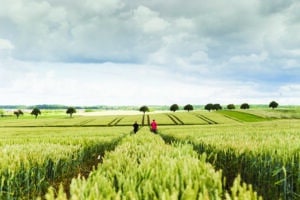
One of the first things to establish was which part of the farming community is obliged to declare their seed use. In the EU regulation it is stated that ‘small’ farmers are excused from the obligation to report their seed use. After discussions with the farmers’ organisations as well as the Ministry, an agreement was made to ‘translate’ the production capacity of a total of 92 tons as a limit to be considered to be a small farmer, as stated in the EU regulation.
Instead, in Sweden, the measurement of production capacity has been converted to a total arable acreage threshold of 23.7 hectares as a limit value to be considered as a small farming unit. If the total acreage of a farm is below this threshold, the farmer is excused from reporting their seed use. Sweden still has quite a large share of farm holdings below this threshold, particularly in the northern part of the country, but holdings obliged to report seed used for drilling will, nevertheless, include close to 80 per cent of the arable acreage in Sweden.
Annually, a meeting is arranged between representatives from the seed trade association and from the farmer organisations to discuss the results of the returned seed declarations and statistics from the past growing season and reporting round. At this meeting, the remuneration levels on farm saved seed in relation to royalty levels on certified seed applicable for the coming season will also be discussed and an agreement will be signed covering the following growing season. For harvest year 2016, the remuneration rate for FSS of a variety was agreed to be 70 per cent, compared with the royalty level on certified seed. Discussions are underway to address future farming practices, where plant breeding efforts are maintained to select new and improved varieties suitable for Swedish growing conditions — as well an emphasis on the fact that royalties and the remuneration fee on FSS is a very low ‘insurance premium’ to secure a steady flow of improved varieties in the future. The organisations LRF and SpmO are strong supporters of communication initiatives and are actively relaying information through their internal media and information channels with valid information to their members.
Another important link to make this information gathering ‘apparatus’ work smoothly is to have access to the correct contact details of the farmers, as well as the arable acreage of each farming unit. As farming units are changing ownership quite frequently in Sweden, it would be difficult to keep an up-to-date registry in-house. When SVUF was established, the association — backed by the farmers’ organisations — approached the ministry and its administrative unit, the Swedish Board of Agriculture, for support.
The Board of Agriculture has the responsibility for the administration of the single payment system in Sweden and a request was put forward by SVUF to get access to up-to-date information from the single payment register. After detailed scrutiny of the legal text by lawyers at the ministry, the association was granted access to one annual data-extract with contact details to farmers applying for single payment contributions for farming units exceeding the 23.7 hectares acreage threshold.
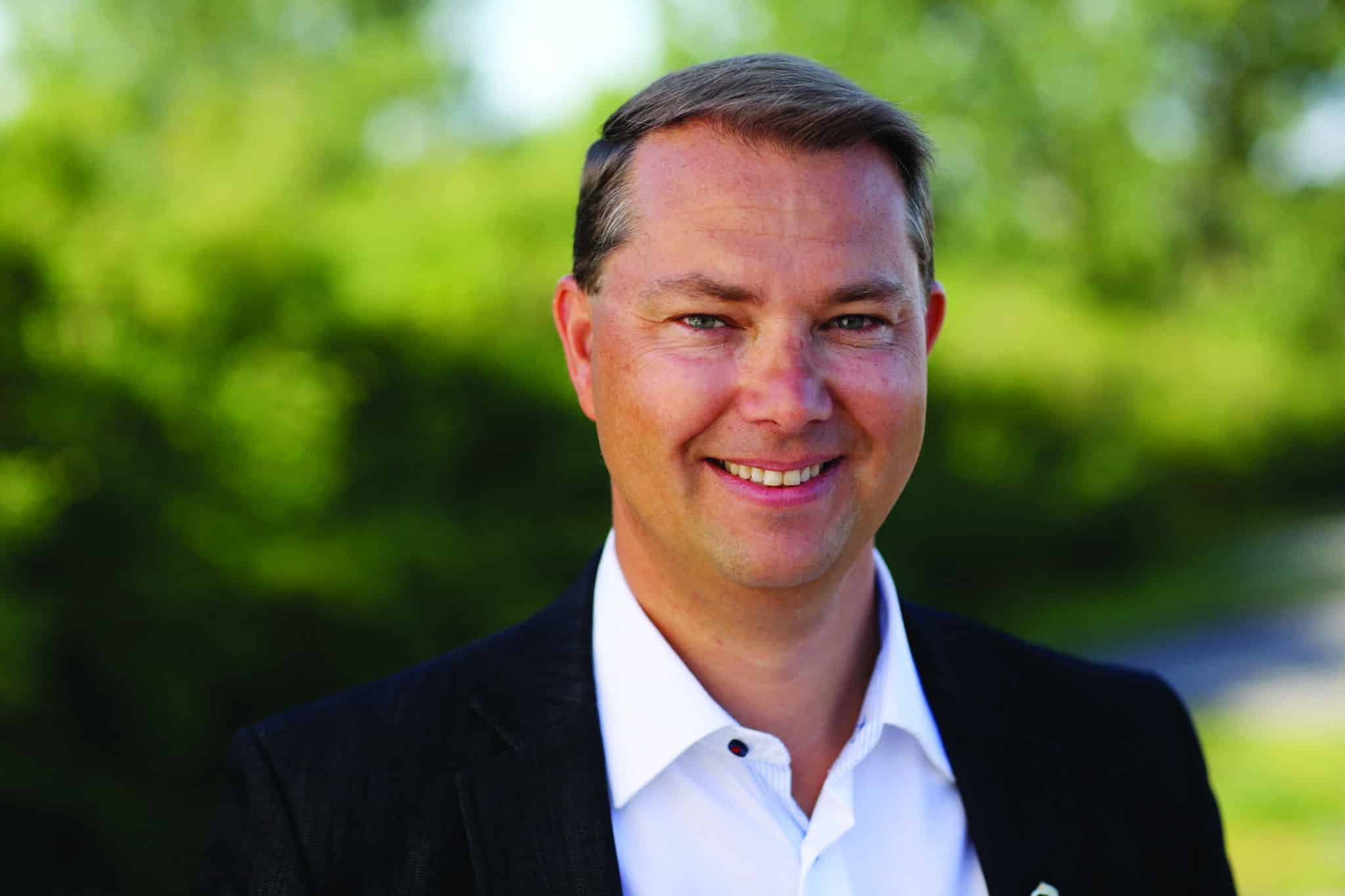
The collection of information on seed has been in operation close to 20 years and is well accepted by the vast majority of farmers in Sweden. With the aid of one or two ‘reminder’ sendouts, SVUF is close to a 100 per cent return rate of seed reports from the farmers obliged to declare seed used during the harvest year. If the provided declarations are correct, than the information from the farmer with information provided by seed cleaning companies can be compared.
In Sweden, only a few of the larger farm holdings have invested in own seed cleaning and approved seed treatment machinery. Instead many farmers, intending to use their harvested seed for drilling, are buying seed cleaning and seed treatment services from dedicated seed cleaning companies. According to the Swedish regulations, these registered seed cleaning entities do not charge the farmer any remuneration fee on the processed FSS, but the companies are obliged to annually provide SVUF with a list of the names of their clients and the services they have provided during the season, including the name of the varieties and quantities of processed seed per variety.
If there is a mismatch between the report from the farmer and information provided by a seed cleaning company, further actions will be initiated. SVUF will, in such cases, ask the farmer for a clarification of the difference in provided data and an option to adjust earlier provided information. This will, in almost all cases, lead to a satisfactory explanation by the farmer and if adjustments of drilled FSS quantities are made, a new invoice will be generated to cover potential additional remuneration fees.
The invoiced remuneration capital on used FSS will be forwarded to the respective variety owner at a few occasions during the collection period and with a final account at the end of each season. The income from the remuneration on FSS provide a welcome return to the variety owners and contributes significantly to make variety development for the Swedish seed market worthwhile.
Swedish Seed Trade Association (SVUF)
The main task for the association is to administer, monitor and maintain the well working and successfully implemented model for reporting and invoice remuneration fees on farm saved seed in Sweden. An additional task for the association is to act as a link and contact point between the seed companies/members and competent authorities and relevant ministries with the Swedish government on all issues connected to plant varieties, seed production and trade
SVUF is member of the European Seed Association (ESA) as well as International Seed Federation (ISF) and SVUF is thereby also responsible to act as a centre of knowledge and liaison on seed related international topics, in particular on European regulations on seed production and trade. The association tries to be member of, and take active part in, the work of many of ESA and ISF committees and working groups with relevance to the members of SVUF.
SVUF has a total of 15 companies as members in the organisation, which includes the majority of companies trading in seed of field crops for drilling and planting of potatoes. Companies with a focus on vegetable crops and ornamentals are currently not represented in SVUF, but the association is open to expand its scope to cover these production segments.
SVUF is governed by a board of six members, each member representing a different member company. The board members, as well as representative from LRF and SpmO, are actively involved in the actions and activities organised by the association through several board meetings as well as informal meetings during the year. The association has one permanently employed staff member, the secretary general of the association. The association has the policy to acquire services based on contracts from third party providers for specific tasks, for example bookkeeping, printing and distributing information and seed declaration forms to the farmers, webpage design and other tasks requiring special competence. This strategy has worked very efficiently and well for the association with several of these third party service providers and their personnel being engaged by the association for many years.
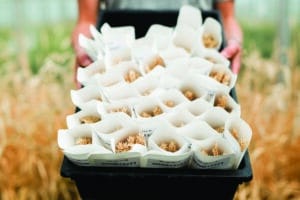
New Breeding Techniques
Since the beginning of commercial plant breeding early last century, Swedish plant breeders have always been inquisitive of new scientific discoveries and were early to apply these in their breeding programs. As an example, cereal breeding efforts moved very early on from mass selection to pedigree breeding and individual plant selection, compared with other European plant breeding efforts.
In the sugar beet breeding programs, Hilleshög AB was early to introduce hybrid breeding as well as monogerm seed traits in their programs. The result was that Hilleshög AB breeders managed to developed strong and competitive varieties for the main part of Europe, whereby the company has been a leading competitor in these markets for long periods of time.
When biotechnology and GM-traits were introduced as tools in plant breeding, Svalöf AB was early to initiate a project to modify the starch composition in potatoes. This program was later acquired by BASF Plant Science and eventually produced the potato ‘Amflora’, a variety that produced pure amylopectin starch. Amflora was entered for commercial approval in EU but later withdrawn by the company due to the political turmoil linked to GMO and biotechnology in Europe.
Discovery of CRISPR-Cas9
The new tools in the plant breeders’ toolbox are both developed and utilised by Swedish scientists and breeders. Several of the new genome editing tools are based on induced mutations with very high precision for specific sites in the genome. One of the currently most-used of these genome editing methods is called CRISPR/Cas9. This method is composed of several components that together have the ability to identify exactly the desired site in the genome where the enzyme Cas9 cuts the DNA-string.
This enzyme was identified as a component in the immune system of a bacteria species against virus infections. A research group at the University of Umeå, Sweden, discovered the Cas9 in 2009 and this research breakthrough is now utilised as an important step to make precision changes in the genome without adding DNA from foreign sources. The CRISPR/Cas9 approach is today an important tool, both in medicine and plant research and development.
At the Swedish Agricultural University, a group of researchers has used the CRISPR/Cas9 method on potatoes to edit the genes for starch production and has now developed a potato variety producing only the amylopectin type of starch. This variety will have the same properties as the variety Amflora, but this new variety contains no added DNA from other species in its genome. The first field test with this potato is planned to be planted in the spring of 2017 in Sweden.
Staying Up-to-Date
Swedish researchers and plant breeders are utilising the latest findings in applied research with the aim of developing new and viable products as fast as possible. To keep up with the development of new plant breeding tools, competent authorities granting approval for testing new products under field conditions have to be up-to-speed with the knowledge and understanding of the new tools and valuable crop traits.
The responsible authority in Sweden has been involved over a long period of time with evaluation and approvals of field tests of several new traits, developed both with GM techniques as well as with the new breeding tools. The deep and detailed knowledge the authority has acquired over the years has given them a very solid knowledge base whereby they can evaluate and grant permissions for field trials.
SVUF has regular dialogues and discussions with the competent authority as well as with responsible persons at the ministry level regarding the ongoing discussions on new breeding techniques at the European level. Key issues have been raised concerning the legal framework and approval process for new and improved varieties bred and developed with aid of new breeding tools — and if specific regulations would be required for these products.
Suggestions have been put forward that the use of new breeding tools should de-regulated in the same way as a GM trait. Swedish authorities have made statements and expressed positive signals of approval towards several of the new tools in the plant breeders ‘toolbox’. Swedish authorities have also expressed the opinion that if a new variety is developed with the aid of the new genome editing tools and the final product contains no added DNA from other species, then this product should not be regulated as a GMO under the European GM-regulation (2001/18/EG).
The Swedish Seed Trade Association is trying to have an open discussion and dialog with as many parties as possible with the aim to pave the way for as many methods and plant breeding approaches as possible. The overall goal for SVUF is to do the utmost to secure and maintain a viable arable production also in the outer/northern regions of Europe for farmers, which in turn also will be to the benefit of the seed industry as a whole.


